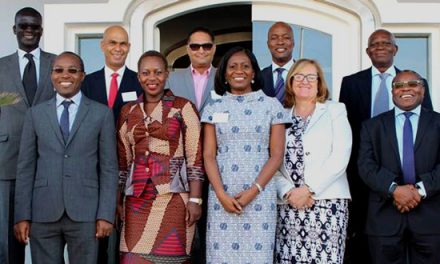
Healthcare Board in talks with SA Government on medical aid for students
Representatives from various member countries in the Southern African Development Community (SADC) have appealed to the South African government to revise some of its student visa requirements, which they say affect students adversely.
Medical scheme representatives from Zimbabwe, Lesotho, Botswana, Swaziland and Namibia, the Council for Medical Schemes (CMS), and the South African Department of Home Affairs, met recently in Johannesburg to discuss some of the challenges students face when applying for visas and to find long- and short-term solutions. The meeting was facilitated by the Board of Healthcare Funders (BHF) of Southern Africa.
During this year, many Namibian students have complained about the South African requirement for medical aid membership, regardless whether they are members of a Namibian medical aid fund.
While the objectives of the visa requirements are to protect local service providers, universities as well as the South African Government and public against risk, we have to find solutions that are fair to all stakeholders, said chairperson of the BHF SADC committee and CEO of Association of Healthcare Funders of Zimbabwe (AHFoZ), Shylet Sanyanga.
The visa requirements that they are referring to are set out in section 13(1) of the Immigration Act and regulation 12(1)(f). According to the requirements, foreign students must belong to a medical aid registered with the CMS, an agency of the National Department of Health that regulates medical aids in South Africa.
Foreign students either have to belong to two medical aids or opt to give up membership in their countries. If they opt to give up membership in their own countries, they have no medical aid cover when they return home at the end of a semester.
Apart from the fact that most students can’t afford dual-membership, some SADC countries’ laws prohibit membership to two medical aids. In addition, some South African medical aid membership rules also prohibit dual-membership. The situation is further exacerbated by the fact that students have to pay 12 months’ membership fees in advance, adding to their financial burden.
No medical aid requirements or restrictions are imposed on South African citizens residing, working or studying in SADC countries. Therefore, South Africa’s Immigration Act requirements are perceived to be contrary to the spirit of the SADC formation, which was signed by 14 heads of state in Maputo, Mozambique in 1999.
Most SADC medical aids have agreements with major South African-based healthcare service provider networks and hospitals, under which cross-border payments are facilitated and scheme members are assured of cover. Pre-authorisation is also required, which further eliminates any commercial risk.
Despite these safeguards, some students’ applications for visas are either denied, while others, who are granted visas, are shown away by universities for not meeting the medical aid regulations set out in the Immigration Act.
Stakeholders agreed that a long-term solution to these challenges is needed. One of the long-term solutions that will be pursued by the BHF and other stakeholders is an amendment to the wording in the Immigration Act, which was changed in 2014. It is not clear what prompted these changes.
To get clarity on this issue and to find interim solutions, high level discussions involving the South African Departments of Home Affairs and Higher Education, will be facilitated by the BHF.












































